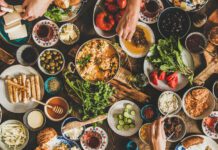I had a career that I loved in the pulp-and-paper industry. I was excited to go to work for more than 15 years; now I’ve taken a hobby to a business,” says Ross Hackworth, owner and winemaker at Nichol Vineyard on British Columbia’s Naramata Bench.
Although he’s being a shade modest, Hackworth’s story is almost that straightforward. He grew up as “an orchard kid” in the area, and was “looking for space to plant grapes to sell to a friend who had a winery at the time,” he recounts. “I was looking at the whole process and thought ‘why not take it to the end game?’ because I had been making wine as a hobby for some time. The vast majority of wineries on the Naramata Bench were hobbyists or people who developed a passion and gave up their careers to pursue it.”
He was aware of the Nichol family’s vineyard and the good reputation of their wines; also, “the varietals on the property were what I was looking to plant anyway,” he says. “They were ready to sell, I was ready to buy and we worked out a deal in 2004. I was responsible for wrapping up the ’04 and ’05 vintages, because they were just in tank when I arrived.” As Canadian wine drinkers are aware, Hackworth arrived at the beginning of a landslide. When he bought Nichol in 2006, “there were 11 wineries between Penticton and Naramata. Now there are probably 39 or 40 wineries, and that’s after six or eight have gone bankrupt. That’s only nine miles. You can extrapolate that through the entire province.”
As the industry expands, Hackworth becomes increasingly frustrated at the duty charged on sales between provinces. “Everybody’s bane is the limits that have been put up by every single province,” he says. “It’s archaic and dysfunctional and penalizes the people who are doing great things in this industry. If we could just sell within our own country, I don’t know how many times bigger this industry would be.”
Meanwhile, Hackworth currently produces 3,500 to 4,000 cases annually. “We make very good wines consistently,” he says, “but we do not make consistent wines.” He describes his
winemaking approach as “noninterventionist: we try to make as good a product as we can each year, given what Mother Nature provides. If you do that, you’re going to
be successful.”
Written by Sarah B. Hood


















